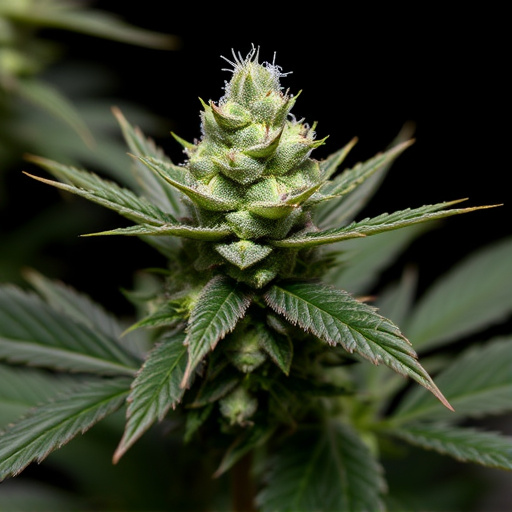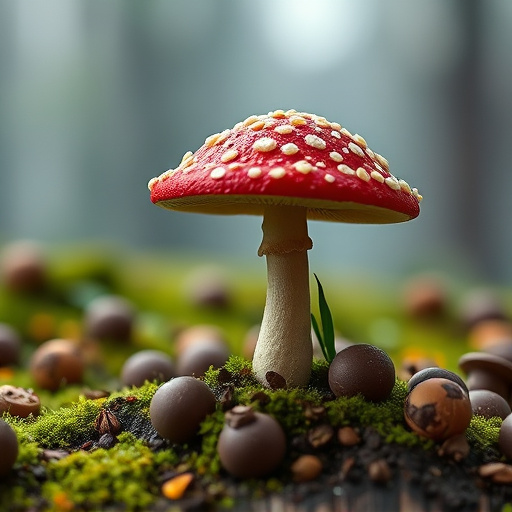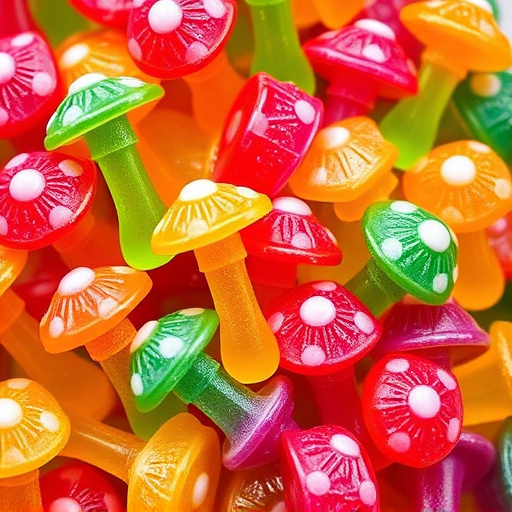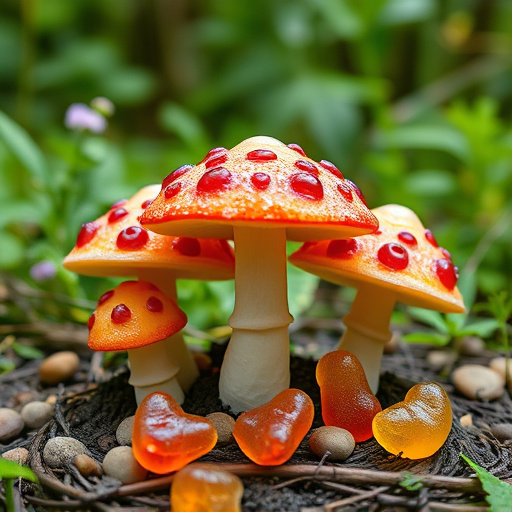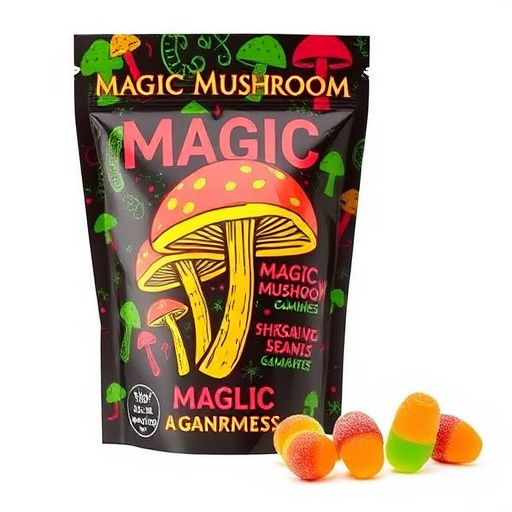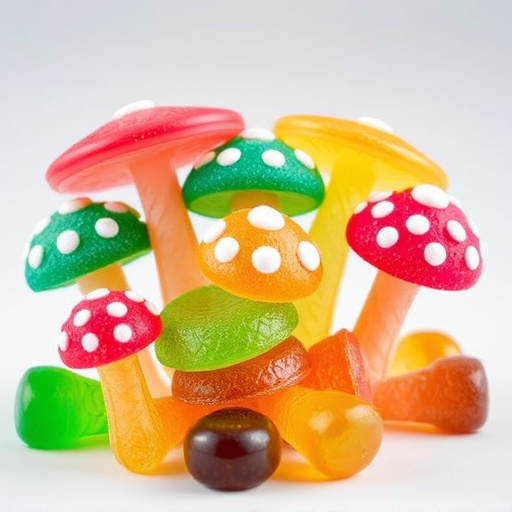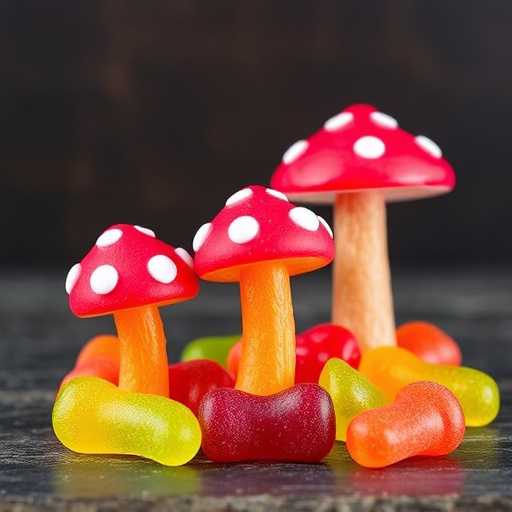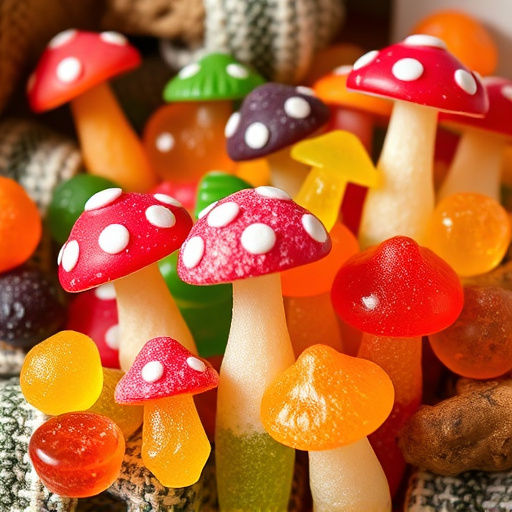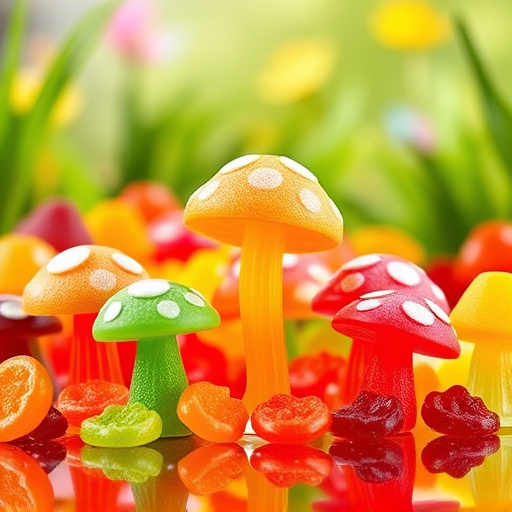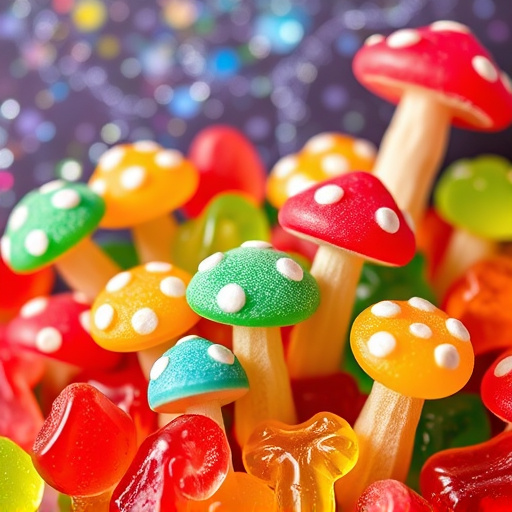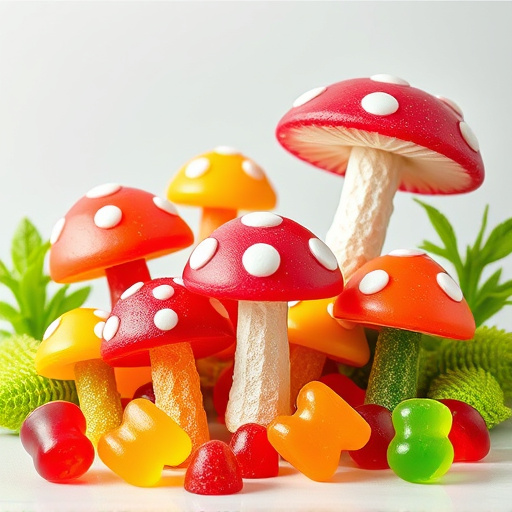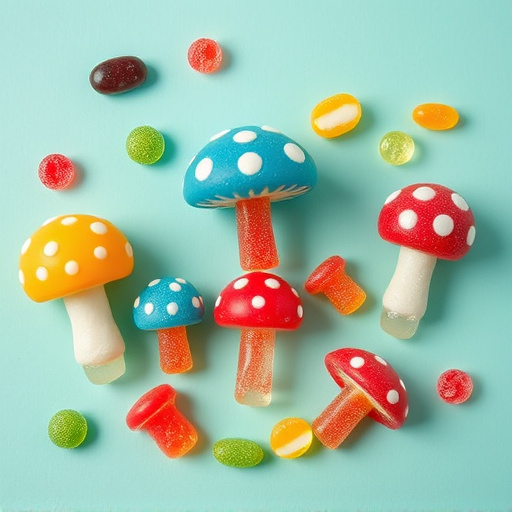Magic Mushroom Gummies offer a modern alternative to traditional psilocybin consumption, providing precise doses for safe altered states. Research suggests these gummies can enhance brain plasticity, boosting creativity and potentially offering therapeutic benefits for mental health conditions like depression, anxiety, and PTSD. However, caution is advised due to varying legal status globally, adverse reaction risks, and the need for further research. Informed decisions require thorough understanding and guidance from medical professionals.
Are Magic Mushroom Gummies the new trend in psychedelic therapy? With an increasing interest in alternative wellness, these edible treats are gaining attention. This comprehensive guide explores the science behind magic mushroom gummies and their potential effects on brain plasticity. We delve into the research surrounding psychadelics, uncovering the benefits and considerations of incorporating these innovative products for personal growth and well-being. Discover the fascinating intersection of ancient fungi and modern mind exploration.
- Understanding Magic Mushroom Gummies: A Comprehensive Overview
- The Science Behind Brain Plasticity and Its Connection to Psychadelics
- Potential Benefits and Considerations of Magic Mushroom Gummies for Personal Use
Understanding Magic Mushroom Gummies: A Comprehensive Overview
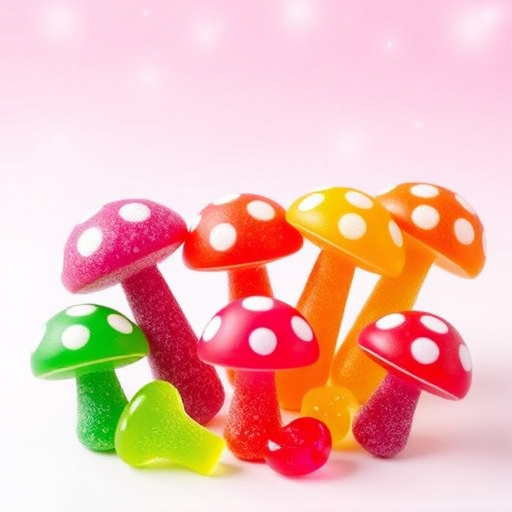
Magic Mushroom Gummies are a modern twist on traditional psilocybin-containing edibles, offering a unique way to experience the potential benefits of these fungi. Unlike dried mushrooms or other forms of ingestion, gummies provide a convenient and discreet method for consumption. Containing pure psilocybin extract, these gummies are designed to deliver a precise dose, making them an attractive option for those curious about exploring altered states of consciousness.
The appeal of Magic Mushroom Gummies lies not only in their ease of use but also in the potential impact on brain plasticity. Brain plasticity refers to the brain’s ability to adapt and reorganize itself by forming new neural connections. Research suggests that psilocybin, the active compound in magic mushrooms, can facilitate this process, leading to increased creativity, enhanced problem-solving skills, and even potential therapeutic benefits for mental health conditions. By understanding how these gummies interact with the brain’s natural plasticity, individuals can make informed decisions about their use, ensuring a safe and potentially transformative experience.
The Science Behind Brain Plasticity and Its Connection to Psychadelics
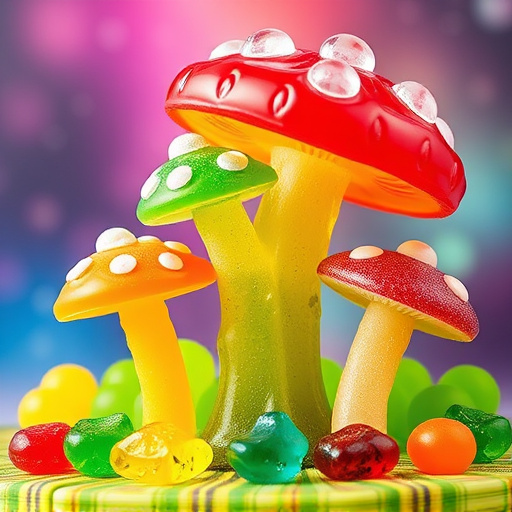
The human brain is a complex organ capable of remarkable adaptability, known as brain plasticity. This concept refers to the brain’s ability to change and reorganize itself throughout life in response to experiences, learning, and environmental factors. When we learn a new skill, form memories, or adapt to changes, neural connections are formed, strengthened, or altered, leading to structural and functional modifications in the brain.
Psychadelics, such as those found in magic mushroom gummies, have gained attention for their potential to enhance and sometimes alter brain plasticity. Research suggests that certain psychadelic compounds can increase neuroplasticity by promoting the growth of new neural connections and enhancing communication between neurons. This may contribute to improved cognitive flexibility, enhanced creativity, and even long-lasting positive changes in mental health and well-being. The interaction between these substances and the brain’s natural plasticity mechanisms offers a promising avenue for exploration in neuroscience and psychology.
Potential Benefits and Considerations of Magic Mushroom Gummies for Personal Use
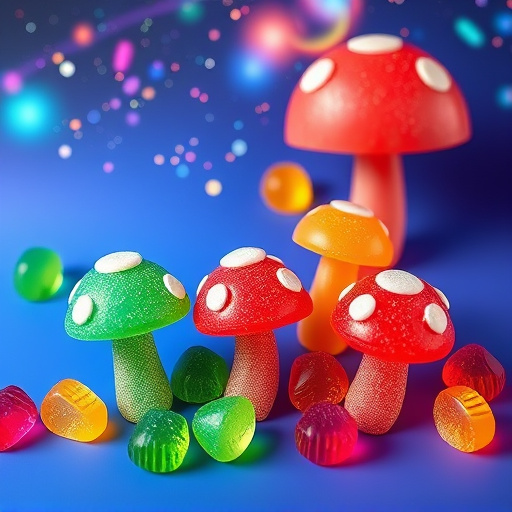
Magic Mushroom Gummies represent a modern approach to exploring potential therapeutic benefits associated with psilocybin, the active compound found in magic mushrooms. Unlike traditional consumption methods, gummies offer a convenient and often more palatable way to experience the effects of psilocybin. One of the most promising areas of research revolves around its impact on brain plasticity. Studies suggest that psilocybin can enhance neuroplasticity, promoting new neural connections and potentially aiding in conditions like depression, anxiety, and post-traumatic stress disorder (PTSD). This ability to facilitate changes in brain function may open doors for innovative treatments.
However, it’s crucial to approach this topic with caution. While early findings are encouraging, more research is needed to fully understand the scope of magic mushroom gummies’ effects. Personal use carries inherent risks, including potential adverse reactions and legal implications. It’s essential to prioritize safety, conduct thorough research, and consider seeking guidance from medical professionals before exploring these substances. Additionally, the legality of psilocybin-containing products varies globally, so staying informed about local regulations is paramount.
Magic mushroom gummies, as an innovative delivery method, offer a unique approach to exploring the potential benefits of psychedelics. The science behind brain plasticity further highlights their promise in enhancing mental health and well-being. While personal use considerations are essential, ongoing research suggests that magic mushroom gummies could be a game-changer in therapeutic applications, providing new avenues for treating various mental health disorders. As we navigate this fascinating landscape, understanding the connection between magic mushroom gummies and brain plasticity is crucial for unlocking their full potential.

